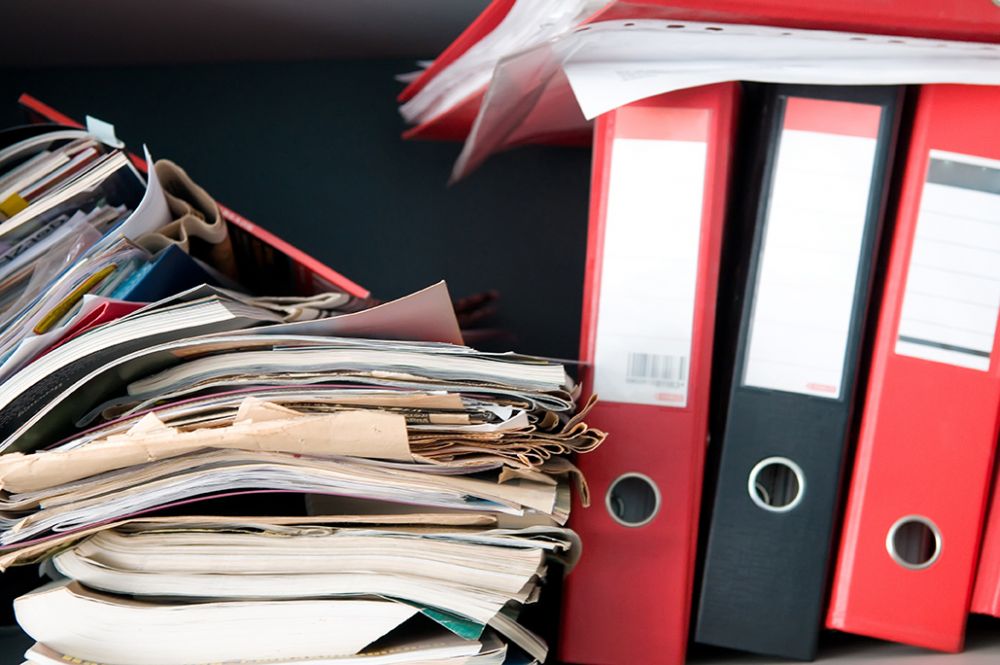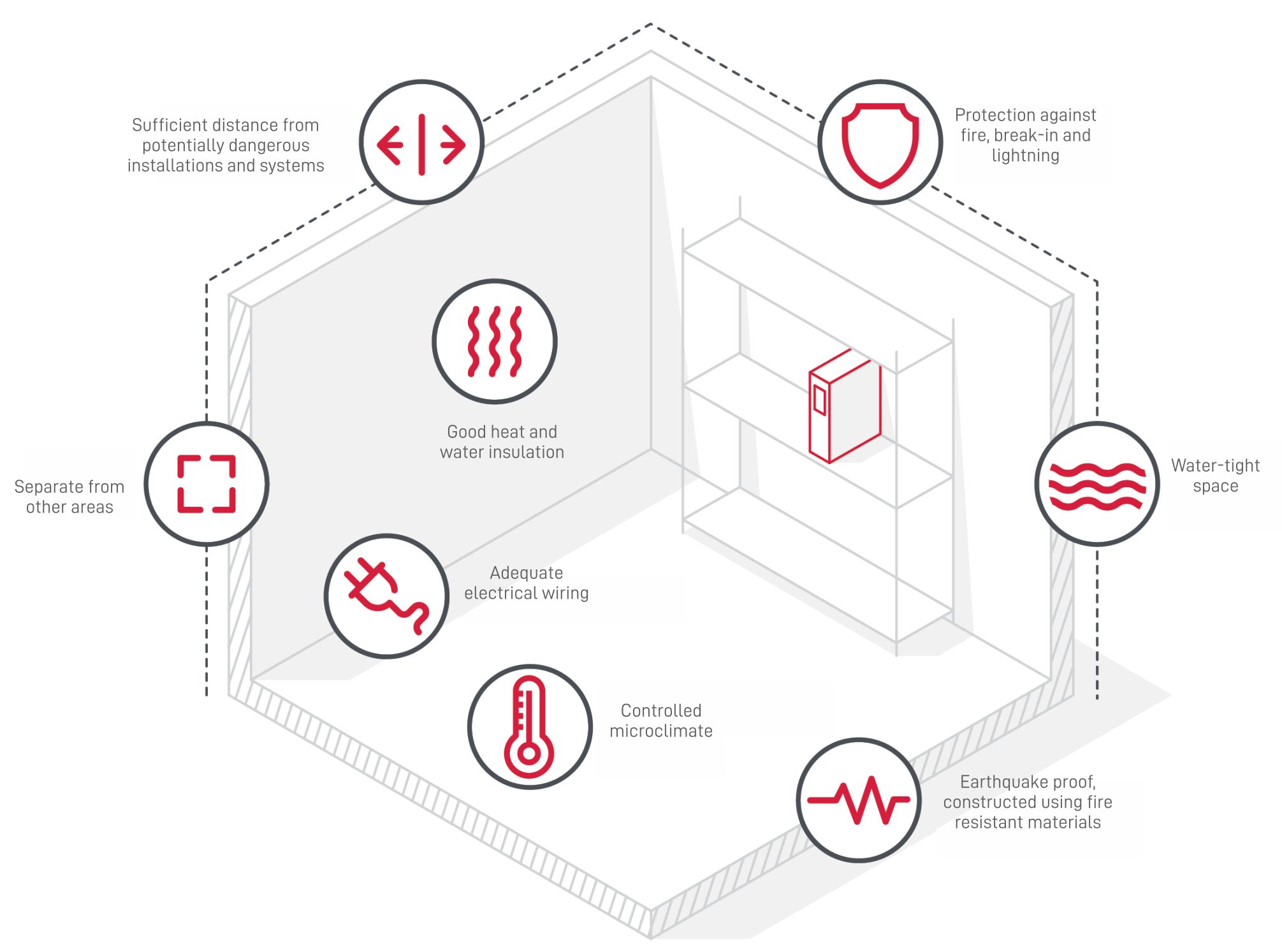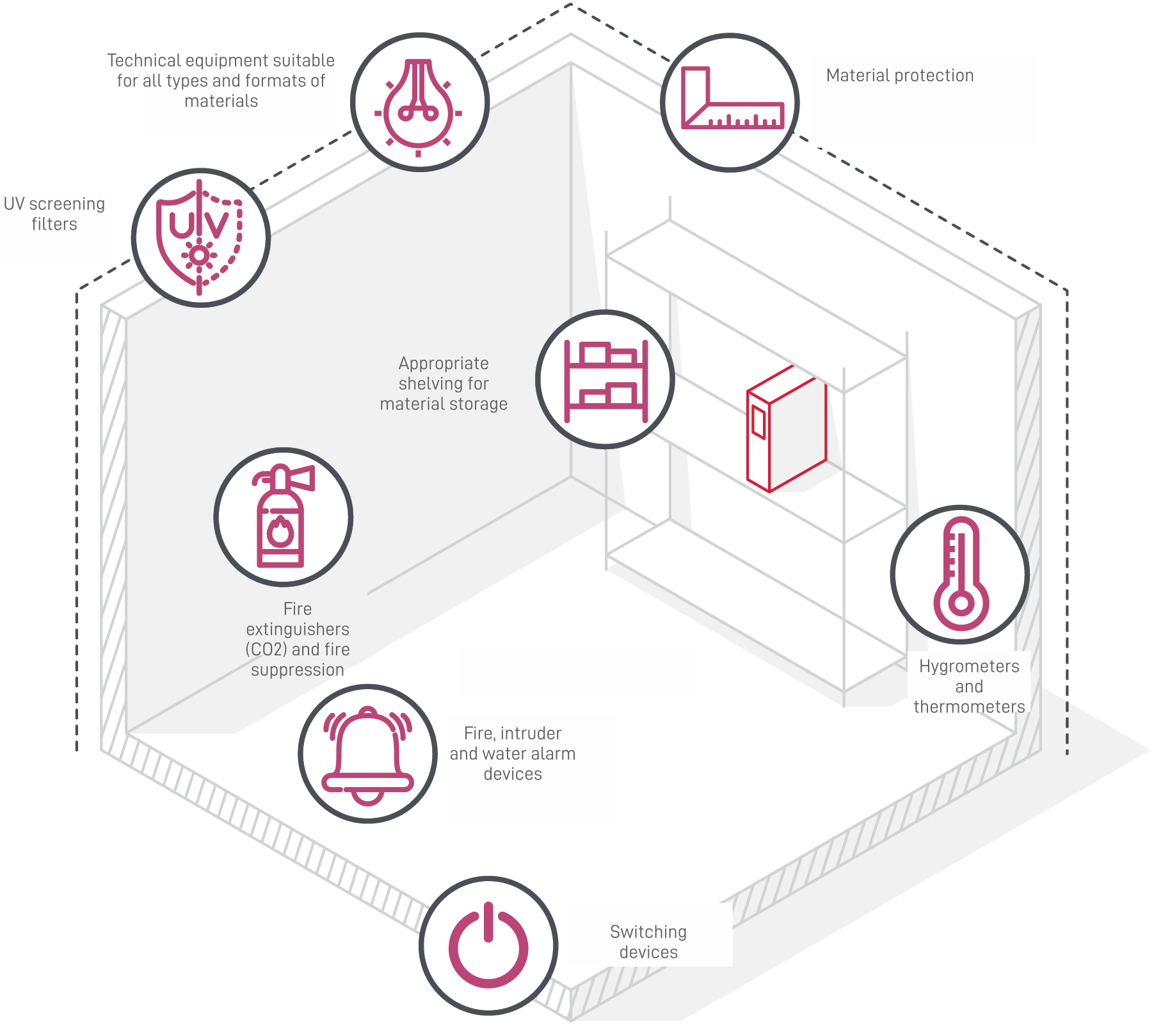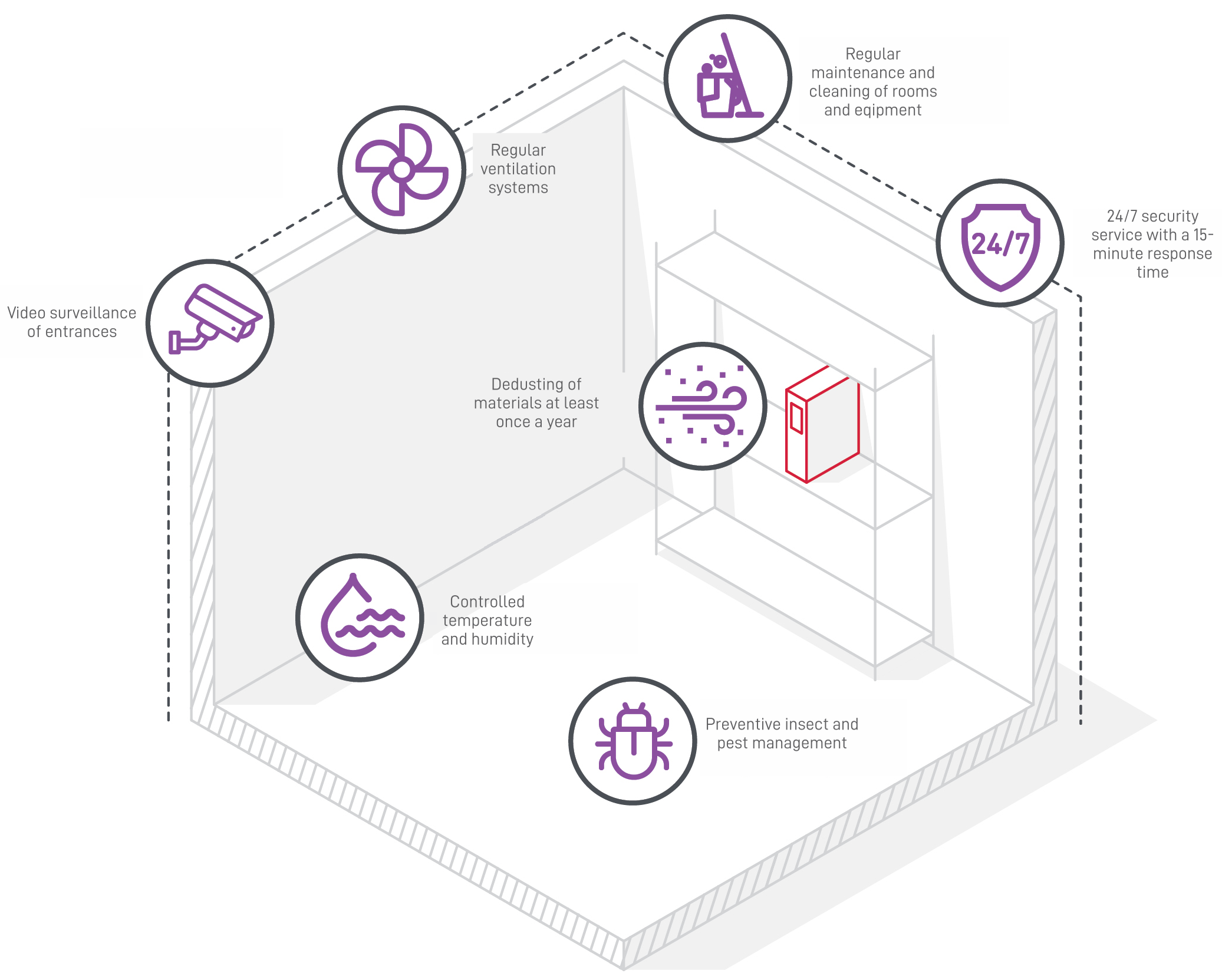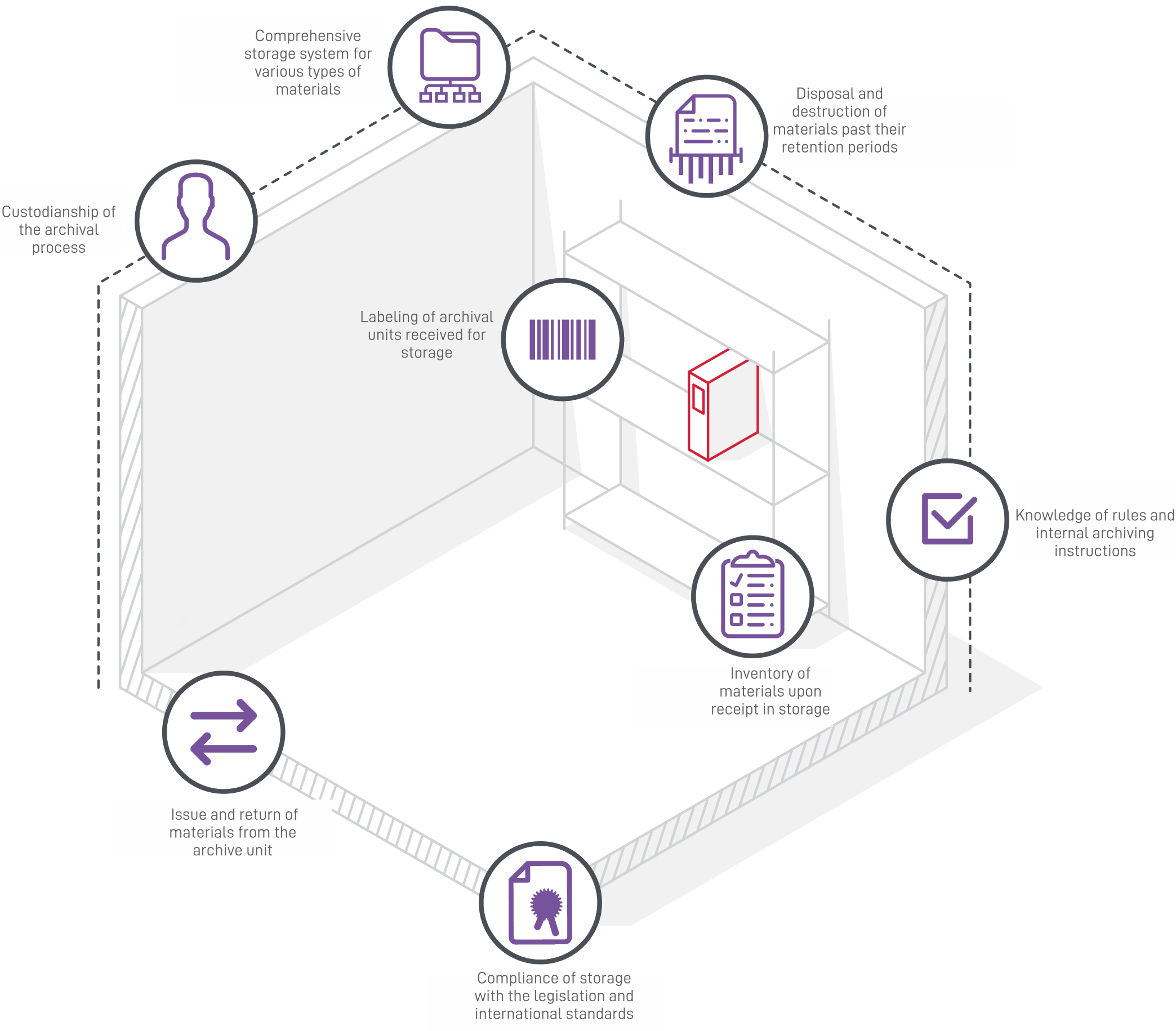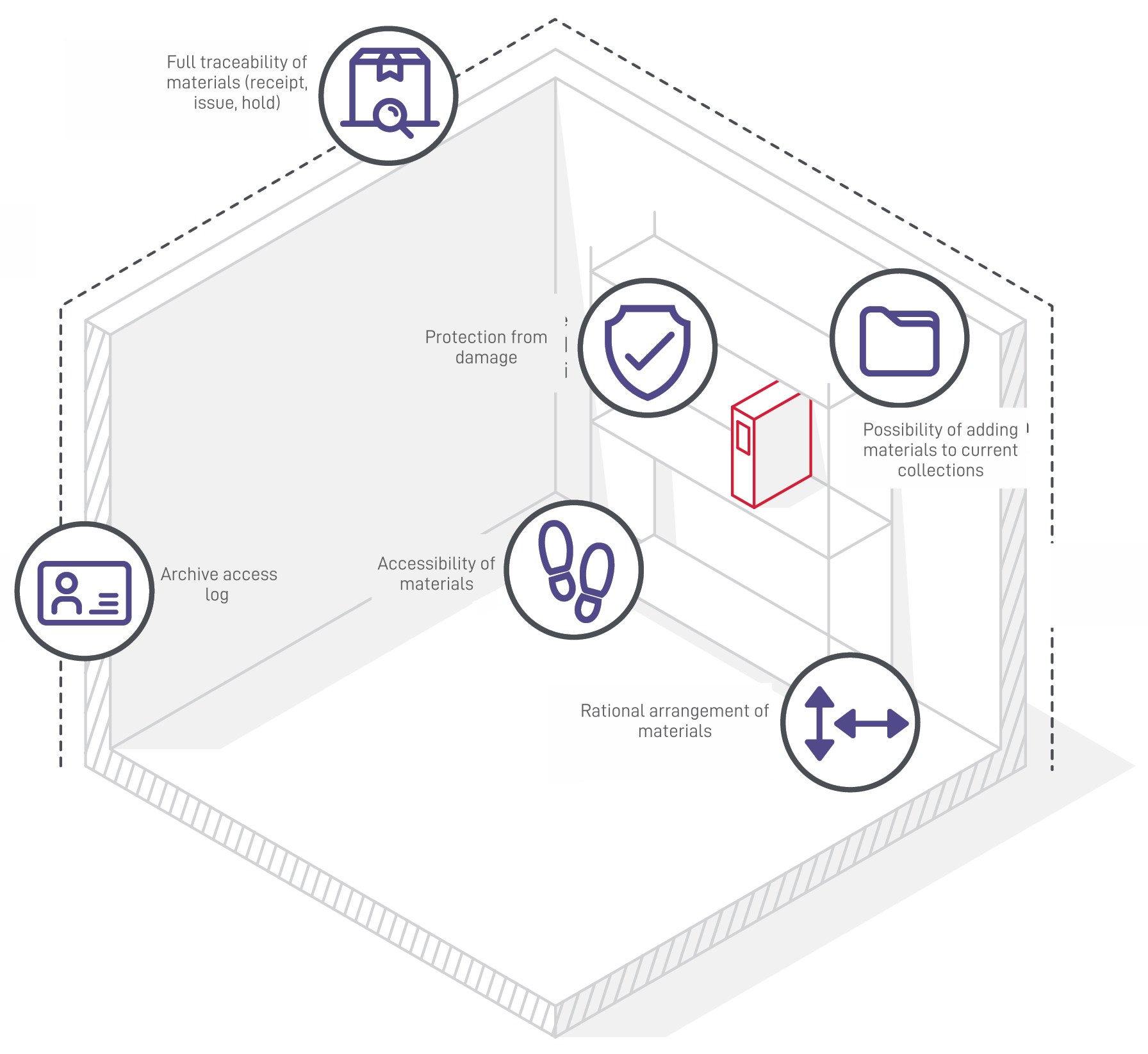Archive mess may be costly
Despite the speed of digitalization, organizations still produce a lot of paper documents which must be properly stored and archived. Unfortunately, many of them fail to realize the importance of storage, which might, in extreme cases, threaten their survival.
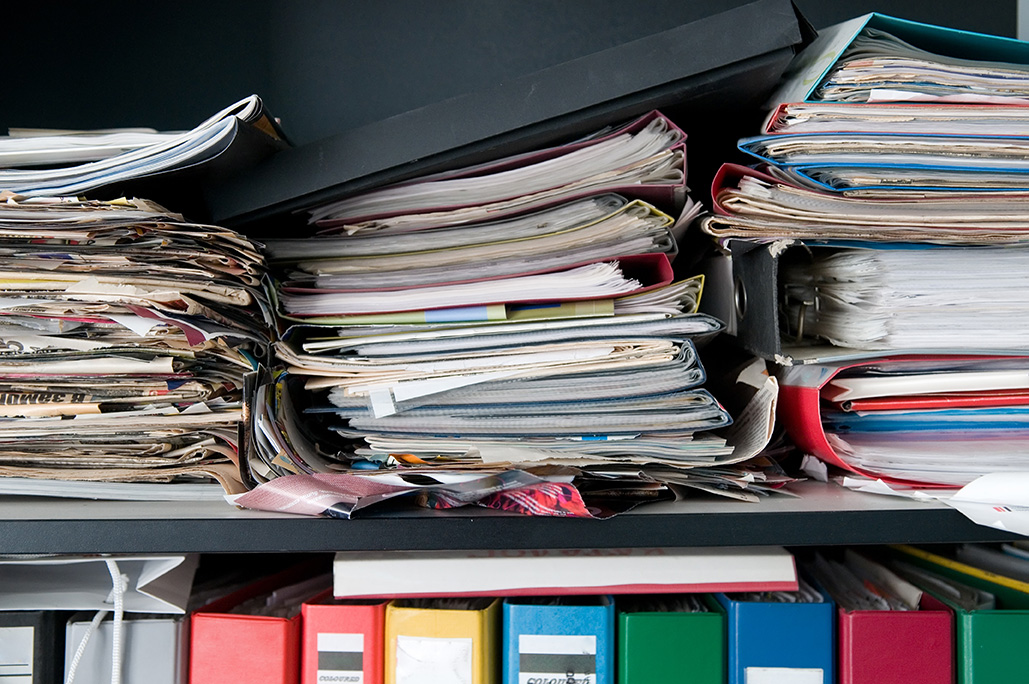
Many organizations do not have a proper legally compliant archive, for a variety of reasons. Plus, they store documents unsistematically and without any control or records of the material stored and its retention periods.
This is, of course, a road to chaos. Soon, searching for documents will become a time consuming if not futile task; in the worst-case scenario, documents may even be lost, which can cause considerable (material) damage and even put our operations at risk.
- In order to ensure long-term storage and archiving of documents, we need a proper space with suitable equipment, protect the documents and set the rules for material handling and use.
- Users should have control over the archived documents, which must be clearly organized and easily accessible.
The business aspect of document storage
According to the act regulating archives, the archived material has a permanent value for the legal interest of natural and legal entities. However, many documents not classified as archival material also carry considerable value for the legal safety of a company and its employees.
What is the difference between archival material and documentary material?
The Slovenian legislation on archiving clearly distinguishes between documents and archives. The Protection of Documents and Archives and Archival Institution Act defines documents as a collective term for all types and forms of records created or received in the course of operations of legal entities and individuals. This definition of documents, more commonly known as (business) documentation, contains both physical (paper) and electronic documents. Documents with lasting importance for history, other sciences and culture or lasting importance for the legal interests of legal and natural persons are called archives, and are considered a cultural monument. Archives are produced by entities under public law and private law entities. Private law entities and natural persons must provide for the preservation of private archives but they can transfer them to the competent public archival institutions. The competent archival institution defines the selection of archives of entities under public law in written professional instructions. Until professional instructions are issued, all documents must be treated as archives, which means that they cannot be destroyed, must be permanently and professionally stored in adequate premises and equipment, under appropriate environmental conditions, protected against fire, water, theft, etc.
When considering the business aspects of storage, we should not forget that (long-term) storage and preservation of documents is a vital measure aimed at mitigation of business risks and assurance of compliance.
Let us look more closely at the personnel files, in particular the pay slips and M4 forms. The statutory retention period for these records is unlimited, or at least 50 years from its creation, which ensures the legal security of the company (providing it with records of monthly contributions and pay) and its employees. Employees will often misplace their pay slips or lose them. On the other hand, they might be required to submit these slips as proof or source of needed data to calculate their retirement benefits. For that reason, the archive and its business documentation (documentary material) must be carefully and properly organized and maintained throughout the company's operations.
An effective storage system will generate considerable time savings in searching for documents. And in business, time is money!
– Anja Prša, archivist, PhD candidate in Archival Studies at Alma Mater Europea – ECM
The importance of meeting long-term preservation standards
Taking control over document storage will greatly simplify our business operations and the work of our employees. In clean and orderly archives, documents are arranged in systematic order, archived securely and in accordance with all applicable regulations, with strict control over who can access the documents. Furthermore, the archive has a high useful value, which means that information can be found quickly and easily.
If the company does not have sufficient space or the space available is not fit for purpose, there is an alternative – external archive space. Apart from space constraints, the decision to rent an archive can also be driven by lack of knowledge and competencies in own staff, the cost perspective, with archive service rental normally costing less than rearranging the office space into an in-house archive, and the fact that time is better spent on the core business activity.
Standards governing long-term document storage
The archive is considered appropriate when it complies with the requirements laid down by the Protection of Documents and Archives and Archival Institutions Act. These standards need to be upheld by any enterprise or organization which is committed to establishing a secure, permanent and legally compliant archive that serves its purpose and provides transparent, accessible and controlled storage.
Space requirements
- The room in which documents are stored must be physically isolated from other rooms.
- The archive room must be in a location remote from heating ducts or smoke exhaust ductwork.
- The archive room shall be well-secured to prevent penetration of water, fire- and lightning-proofed, and fitted with appropriate electrical wiring.
- The archive room must be earthquake-safe and constructed using fire-proof materials.
- The archive room must provide suitable microclimate.
Equipment requirements
- UV protection must be put in place.
- The archive room is fitted with shielded (safe) lights.
- Technical equipment for all types and formats of archive materials is provided.
- The archive room is fitted with suitable shelving to store archive materials.
- Thermometers and hygrometers are installed.
- Appropriate fire extinguishers and fire suppression systems are installed.
- The archive room shall have fire alarms, burglar alarms and water leak detectors.
Protection of archive materials
- The archive room and equipment is regularly maintained and cleaned.
- Proper precautions against insects and other pests are taken.
- Dust and dirt shall be removed from the archive material at least once a year.
- The archive room must be regularly aired.
- Proper temperature and humidity must be provided.
- Video surveillance shall be ensured at all entrances to the archive room.
- A 24/4 security surveillance by security service shall be provided.
Managing archive materials
- A systematic and comprehensive solutions for storage and archiving of different types of material must be put in place.
- The curator of the archival premises shall be appointed.
- Responsible persons must be notified about archiving rules and internal guidelines.
- All new material must be recorded.
- Archive units must be labelled upon admission.
- A record must be made of every issue or return of archive material units.
- Archive material whose retention period has expired shall be extracted and discarded.
- Compliance of storage and archiving with applicable rules and standards must be ensured at all times.
Use of archive material
- Ensure traceability of the archive material (who accepted, issued, borrowed a certain archival unit).
- Keep accurate records of all accesses to material.
- The archive material must be placed rationally and easily accessible.
- The material must be protected from damage.
- The archive room must be cleaned regularly.
- The material is promptly added to the active archive.
Please note: All employees who are in any way involved in managing documents must be familiar with the fundamental rules and guidelines for long-term storage and preservation. It is crucial that all company employees know their role in storage, protection, and handling of archive materials.
Want to know more? Contact us!
